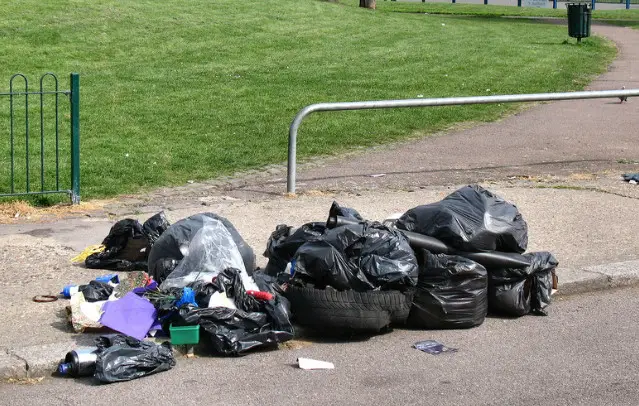Later this week the 40 Isle of Wight councillors will be debating and voting on the 2018/19 council budget (follow our live coverage on Wednesday from 5pm).
The Conservative IWC administration say they have to make over £7m of cuts to services in the coming year due to less funding from the Conservative Government.
One area where the council hope to make savings is in the collection of waste from holiday lets and nursing homes. Ahead of Wednesday’s budget meeting, OnTheWight tries to get to the bottom of who would benefit and who would lose from the changes.
End to domestic waste collection for holiday lets
The budget papers say that holiday lets and commercial businesses are required to have a business waste collection service, but often use domestic waste collection services provided at the expense of the council tax payer.
A spokesperson for the IWC told OnTheWight,
“The council is seeking to move to a position of pro-actively seeking and reminding holiday let owners that these are commercial properties and cannot use the free Household collection service for commercial waste.
“Holiday lets that may be abusing the collection service increase the council’s cost of collection, treatment and disposal of such waste and recycling, increasing the cost to the community.
“The council currently offer a trade waste service for such properties, they are also able to arrange for commercial waste services if they wish.”
The IWC have forecast they will make savings of £65,000 in 2018/19 from the changes.
Nursing homes to be targeted
Similarly, by law (Controlled Waste Regulations 2012), although classified as Household Waste, Local Authorities are able to charge for the collection and disposal of waste and recycling arising from a residential homes and from premises forming part of a hospital or nursing home.
The council will be looking to change the operating policy for these to offer a trade waste service for such properties, they are also able to arrange for commercial waste services if they wish.
The IWC have forecast they will make savings of £32,300 in 2018/19 from the changes.
Who gains?
The trade waste collections are operated and invoiced by the Service Provider on behalf of the council.
The service provider is paid for the cost of providing the service (staff, vehicles, fuel etc.) and the cost of treatment or disposal would be covered by the charge for the service.
A spokesperson for the council said,
“The savings/income being proposed within the budget papers are to be achieved from a combination of:
- reduced costs to the council (and community) of collecting these wastes and treating them for free where we should not be,
- and from charging for the provision of such services to businesses.”
Image: Alan Stanton under CC BY 2.0





